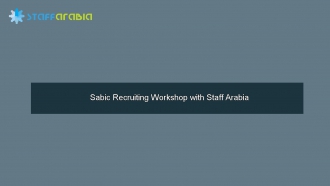
No matter how confident you are, chances are the following scenario feels at least a little familiar: You’re in the middle of a meeting when you have the mother of all lightbulb moments. You speak up but downplay the true genius of your idea because, well, you don’t want to put anyone off, or you’re suddenly not sure it’s as great as it seems. Kudos to Alexandra Petri of The Washington Post for putting a hilarious spin on the issue in a recent piece that imagines how women would say famous quotes during meetings.
While the piece offers a fresh, funny take on the continuing conversation about how women talk at work, it also speaks to the frustration of feeling uncomfortable fully owning what you want to say. Here, Hallie Crawford, certified career coach and founder of HallieCrawford.com, shares the best tactics for getting your voice heard in meetings.
1. Prepare, prepare, prepare.
Even though meetings often veer off course, it never hurts to prepare yourself for what your team will discuss. “Sit down and think about what you want to accomplish in the meeting,” says Crawford. This goes beyond the thoughts you’d like to get across, although it’s a great idea to jot those down, too. In addition to writing out the points you’d like to make, spend some time focusing on who you want to be in the meeting. “Thinking about how you want to come across can help you feel even more prepared,” says Crawford.
2. Kick negative thoughts to the curb.
Your inner voice can either help or hurt you during a meeting. “Even my assertive clients are often hesitant to do things like speak up,” says Crawford. She chalks some of that reluctance up to factors like self-doubt and anxiety about upsetting anyone, both of which really come down to negative thinking. “Be aware of those thoughts, before and during the meeting,” says Crawford. “Do your best to leave them at the door.” If they’re still shouting for attention, try to ignore them and push yourself to speak up anyway. “Sometimes it helps to fake it till you make it,” says Crawford.
3. Speak like a newscaster.
This one’s unexpected, but that’s what makes it brilliant. Great newscasters are direct but not abrupt, speak confidently, and don’t pepper their broadcasts with “sorry” or disclaimers like, “I’m not sure if this is a good idea.” “It’s about speaking almost in bulleted language so you get to the point, explain things, and don’t ramble,” says Crawford, who often recommends her clients try this out at work. This might be just what you need next time you think you’re going on and on when trying to express yourself in a meeting.
4. Use body language to your advantage.
The best idea in the world won’t get the reception it should if you mumble it while staring at your lap with hunched shoulders. “Sit up straight, lean forward, and be engaged,” says Crawford. “That can help you feel more confident in the moment and speak up.” Another key tip: make sure you’re sitting in the right place. You don’t want to be way back in the meeting equivalent of nosebleed seats! Instead, Crawford recommends situating yourself in a more powerful central position, closer to whoever is leading the meeting. To top it all off, use eye contact to your benefit. “It’s fine if you need to glance down at your notes, but be sure to make eye contact with the person or people you’re speaking to,” says Crawford.
5. Handle Interruptions with grace.
So you’ve done all of the above, you’re explaining your point beautifully, then someone takes off on a tangent like you’ve handed them some sort of conversational baton. “If you’re interrupted, you may want to let the person finish their thought,” says Crawford. Otherwise, it can turn into an interrupt-athon. When they’re done, Crawford suggests saying something boss lady-esque like, “Thank you for sharing. Now, I need to finish what I had to say before.”
The exception to this rule is if this is someone who interrupts you all the time, or you don’t think you’ll get the floor back later on. “Then you might say, ‘Excuse me, but I need to finish what I’m thinking here,’” says Crawford. This points out that you have manners without actually apologizing for speaking up, and also emphasizes that you know what you have to say is worth it.
















